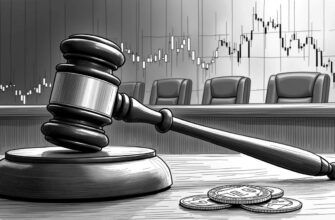Over the last decade, global manufacturers have had to navigate a volatile, technologically accelerating and fast-moving economic environment.
Changes in consumer expectations, technological advances, increased complexities in global supply chains and rising compliance burdens have now made transparency, traceability, accountability and efficiency more critical than ever before.
Transparency is now an emerging default for competitiveness
The capacity to see into manufacturing processes on a granular level and be able to share these processes with external stakeholders has become paramount as it sends a signal of credibility and trust to consumers that are crying out for openness.
New technologies are enabling consumers to gain an unprecedented window into the global economy and the opaque supply chains that fuel it. Issues such as worker exploitation and environmental degradation are more visible to the public than ever before. As a result, consumers are demanding to know where and how the products they buy get made. They are reimagining a fairer, more sustainable economy, holding companies accountable for their actions by changing purchasing habits and boycotting companies that remain closed and secretive.
Traceability & accountability
There are several driving factors behind the need for manufacturers to develop enhanced traceability into their operations and increase their ability to assign accountability. Product provenance is now an essential consideration for many consumers when purchasing goods and services.
The proliferation of counterfeit goods which has led to growing consumer concerns over authenticity is another driving factor. Counterfeiting has caused a decline in consumer trust and reputational damage to brands across almost every industry. It has even resulted in significant health and safety issues for consumers, especially in the food and pharmaceutical industries. The widespread contamination of infant formula in China, which led to the deaths of infants and young children, is one such example.
A 2017 study from Global Financial Integrity (GFI) estimates the global trade value of counterfeit and pirated goods to generate between US$923 billion to $1.13 trillion annually. According to a report commissioned by the International Trademark Association (INTA) and the International Chamber of Commerce, the global value of the counterfeit market in 2015 stood at $1.7 trillion.
Another driving factor is regulatory compliance. Governments have begun introducing game-changing regulations that put unprecedented demands on companies. Large corporations in the European Union, for example, are now required to file annual reports on their corporate social responsibility, detailing their policies and activities on issues such as human rights and protecting the environment. Regulations like the European directive on non-financial reporting or the UK Modern Slavery Act, are set to require companies to disclose reliable and transparent information about their business footprint.
Across the Atlantic in the US, former President Obama signed the Trade Facilitation and Trade Enforcement Act (H.R. 644). Section 910 of this law strengthens restrictions on the import of goods into the United States produced with forced labor.
Companies must have a way to conduct granular investigations and measure the impacts of their supply chains to have any chance of complying with these and other regulations. They also need to gain an efficient way of showing regulators they are following the rules and have the ability to assign accountability to specific parties for any criminal actions.
The capacity to find and identify corrosive problems and find inefficiencies within complex and geographically dispersed supply chains is critical for operational reasons as well. With advanced track-and-traceability capabilities, product recalls which cost companies millions of dollars could also be averted.
Efficiency
Today’s manufacturing supply chains have become incredibly complex, often spanning hundreds or even thousands of stages and dozens of geographical locations. At the same time as supply chains become infinitely more complex, manufacturers are also contending with commodity price fluctuations, diminishing resources, rising fuel and freight costs, and economic and political instability as well.
“Simply put, e-commerce has altered the practice, timing, and technology of business-to-business (B2B) and business-to-consumer (B2C) commerce. It has affected pricing, product availability, transportation patterns, and consumer behavior in developed economies worldwide.”[1]
Rising customer expectations for cheap and customized products delivered on demand have added to efficiency pressures. The proliferation of e-commerce has impacted everything from pricing and delivery patterns to consumer behavior.
Additionally, globalization and advances in technology are forcing companies to compete against local and international competitors. From unexpected delays and cost variations to swings in customer demand and increased competition, manufacturers face a plethora of pressures to become more efficient.
Transformation in manufacturing runs through the supply chain
To transform manufacturing, the supply chains that lie at the heart of operations must be changed because they are ill-equipped to meet the demands of today’s economy. Developed in large part decades ago, supply chains have become difficult to manage and incapable of supporting the complex, on-demand and geographically dispersed production and supply cycles which characterize the globalized digital economy.
Centralized and outdated supply chain systems simply do not have the capacity to deliver systemic visibility which is the key enabler of transparency, traceability, accountability, and efficiency that is needed in today’s economy.
“The trust, transparency and traceability that is desired is hard to achieve in the current infrastructural environment with silo-like back offices. Each company along the supply chain has their own systems, where all transactions are handled in separate databases.”[2]
With piecemeal visibility across the supply chain, manufacturers remain powerless to meet consumer demands for transparency as they have no way of seeing the inner workings of their supply chains. Granular level tracking of products, the investigation of incidents and the assignment of accountability is also challenging and decision makers have limited access to actionable information as well.
“Traceability has proven to be a difficult task for most companies, and a 2014 report indicated that over 90 percent of the 1,200 firms reporting to the SEC were unable to fully trace the origin of materials in their products and therefore could not guarantee the absence of conflict minerals.”[3]
With no way to gain a complete, system-wide picture of internal supply chain processes or retrieve meaningful information, executives administering over today’s outdated systems are not only powerless to make informed decisions but also incapable of coordinating material, financial and information flows.
Supercharging supply chains with blockchain technology
For good reason, companies from around the world are exploring applications of blockchain technology in their supply chain networks. A recent study by Capgemini Research Institute which surveyed 731 organizations regarding their existing and planned blockchain initiatives, found that 447 organizations are currently experimenting with or implementing blockchain. Out of these organizations, manufacturers were found to have the most at-scale deployments of blockchain today, leading all industries included in the study.
Put simply, using blockchain technology can deliver system-wide visibility across supply chains enabling companies to meet the transparency, traceability, accountability and efficiency imperatives required for competitiveness.
By replacing rigid centralized supply chain systems with a dynamic, decentralized infrastructure, the blockchain technology supercharges the ability to track and immutably record the movement of both goods and information across entities on a supply chain.[4]
Transactions that occur on a blockchain powered supply chain can involve the transfer of anything of value from physical assets to legal documents. These asset exchanges (transactions) are grouped together in an encrypted block with other recent transactions. Once validated, each transaction within the latest block of transactions is timestamped and added to an unchangeable chain of blocks in chronological order.
With each time-stamp including a previous time-stamp, an immutable audit trail is created that is visible to all members of the blockchain network, in real time, on an openly shared ledger.
“As revolutionary as it sounds, Blockchain truly is a mechanism to bring everyone to the highest degree of accountability. No more missed transactions, human or machine errors, or even an exchange that was not done with the consent of the parties involved. Above anything else, the most critical area where Blockchain helps is to guarantee the validity of a transaction by recording it not only on a main register but a connected distributed system of registers, all of which are connected through a secure validation mechanism.” – Ian Kahn
Using blockchain in supply chains provides a unique infrastructure that gives companies the capacity to link physical goods to serial numbers and digital tags and record them on a shared platform. Granular traceability and auditability of physical goods and an efficient method of identifying problems, criminal activities and assigning accountability become possible.
Imagine the transformational advantages delivered by having the ability to instantly inspect an uninterrupted chain of custody from raw materials to end of sale and even to recycling and reuse!
Smart contracts can automate inefficient trade finance processes
As supply chains have become more complex, the financing of trade has become a growing nightmare for both providers and many manufacturers as well.
Trade finance today is inefficient, costly and susceptible to illicit activities like fraud. It involves the coordination of multiple parties and is reliant on manual processing to check contractual rights and obligations, terms for payment and facilitate the delivery of goods and services.
Manufacturers must spend valuable time and money working through mountains of paperwork to review financial agreements and wait on intermediaries to release payments.[5] Reviews by intermediaries often delay the shipment of goods and version control challenges exist as well, as information gets sent from one entity to another. Miscommunication and duplication of documents are common, and the risk of fraud and other illicit activities is high.
“All too often, supply chains are hampered by paper-based systems reliant on trading parties and banks around the world physically transferring documents, a process that can take weeks for a single transaction. Letters of credit and bills of lading must be signed and referenced by a multitude of parties, increasing exposure to loss and fraud.”[6]
Trade finance is an area which blockchain enabled smart contracts can make transformational improvements. Smart contracts can facilitate the exchange of money, physical assets or anything of value. [7]
When run on a blockchain, smart contracts become self-executing contracts where enforcement, rights, and obligations, performance, and payment are automatically executed by an autonomous system.[8] Blockchain enabled smart contracts are central to the development of next-generation supply chain platforms as they can automate parts of trade finance, eliminating many of the manual processes and ending the reliance on costly and inefficient intermediaries.[9]
Additionally, smart contracts remove the need to store copies of the same document on numerous databases across various entities, condemning duplications and time-consuming data reconciliation to history.
With secure and accessible digital versions available to all parties in a transaction, fraud and other execution risks can also be reduced or even eliminated altogether, as the immutable nature of blockchain enabled smart contracts prohibits manipulation and nonperformance.
Ultimately, by automating some of the processes involved with supply chain management and providing system-wide visibility, blockchain technology has the potential to drive real business value for manufacturers as transformative forces bear down on the global economy.
Find out how blockchain technology can transform global supply chains, insurance, compliance, and national healthcare systems.
Feel free to email me directly with any questions on using blockchain in supply chains — [email protected]
Anthony is the head of content and research at Intrepid Ventures. He has spent the past several years researching and analyzing technologies and working with a diverse mix of blockchain companies to help them gain insight and develop authoritative content.
Also published on Medium.







